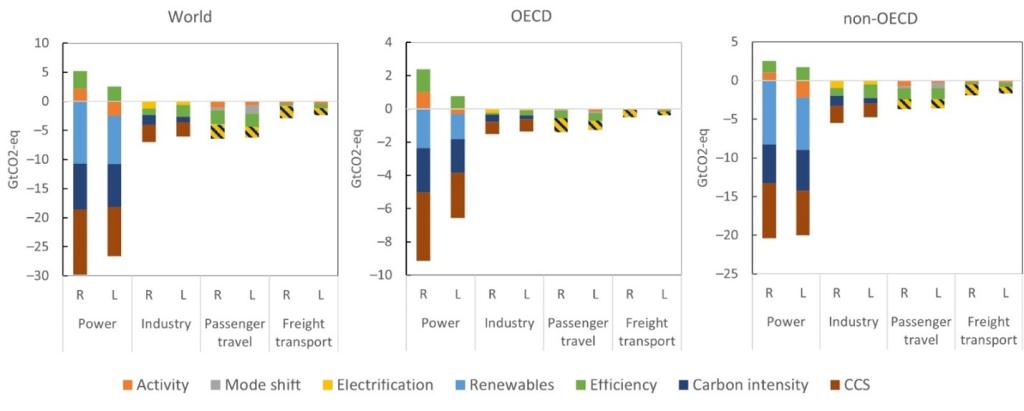What are the Main Contributing Factors to Carbon Neutrality across Sectors?
It is essential to explore the role of mitigation action of different sectors and different regions of the world to understand the possible mitigation pathways reaching the Paris Agreement. Decomposition analysis can be used to investigate the key contributions to changes in greenhouse gas emissions in different scenarios among regions. This research applies decomposition analysis for the three highest-emitting sectors: power generation, industry, and transportation (both passenger and freight). These analyses were applied to the SSP2 baseline and two recently developed 1.5 °C mitigation scenarios by the Integrated Model to Assess the Global Environment (IMAGE). These scenarios include the default strategy and two alternatives: one focusing strongly on a rapid expansion of renewables and electrification and one focusing strongly on lifestyle changes. We present results for World, OECD (characterised by relatively high per capita income levels and emissions), and non-OECD (characterised by relatively high carbon intensities of the economy) regions.
Sectoral and regional differences
The decomposition analysis shows that carbon capture and storage (CCS) for fossil fuel and bioenergy combustion, renewables, and reducing carbon intensity have the most significant contributions to emission reduction in the mitigation scenarios (Figure 1, (World)). Efficiency improvement is also critical, but part of the potential is already achieved in the Baseline scenario.
Figure 1 (OECD and non-OECD) shows that the relative importance of different emission reduction drivers is similar in the OECD and non-OECD region, but there are some noteworthy differences. In the non-OECD region, improving efficiency in industry and transport, and increasing the share of renewables in power generation, are more critical in reducing emissions than in the OECD region. In contrast, CCS in power generation and electrification of passenger transport are more important drivers in the OECD region.

- Artikel | 24 December 2021to the article on the PBL website